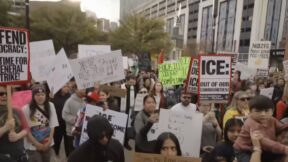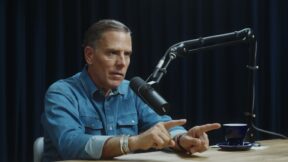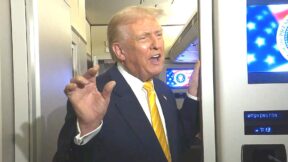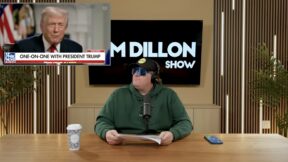‘It Is a Cancer Inside the Republican Party And It Needs to be Removed’: Jake Tapper Talks Election Deniers and New Jan. 6 Special With Mediaite
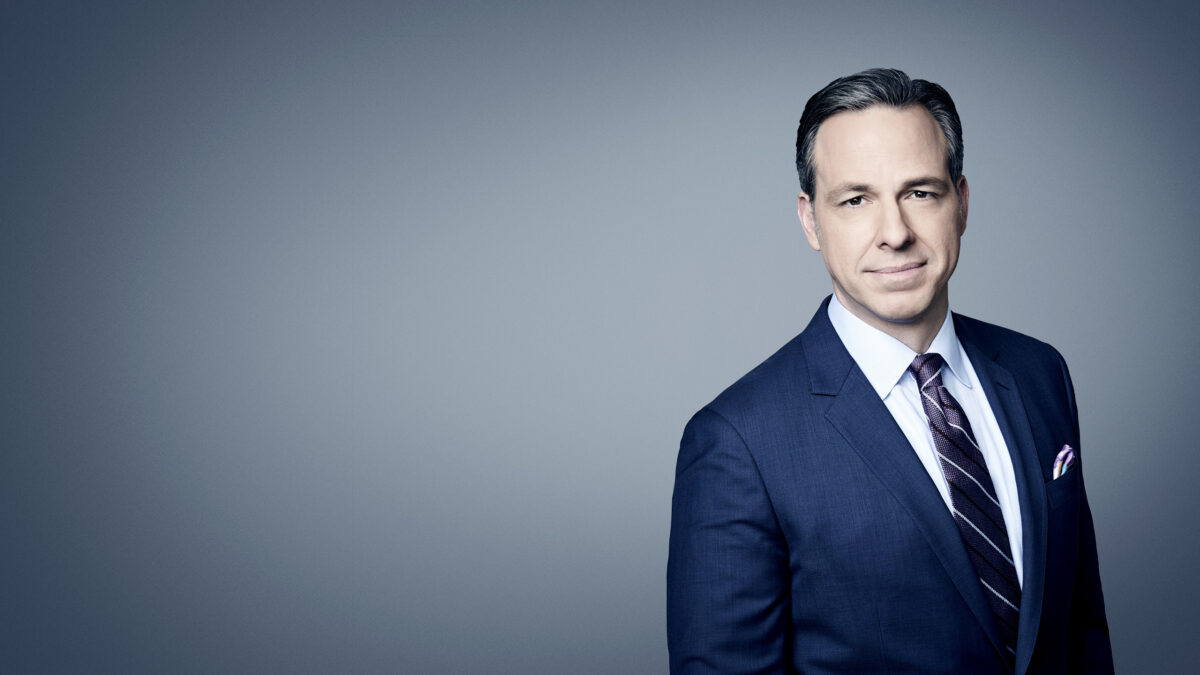
Jake Tapper is, understandably, concerned about the state of American democracy following the events of January 6, 2021. He thinks they deserve further scrutiny. So on Sunday, Tapper will host a special report titled “American Coup,” the second installment of CNN’s two-hour investigation into the attack on the Capitol by Trump supporters.
I spoke to Tapper on Thursday and discussed several relevant topics related to the special, including what part he felt was most significant of this wide-ranging story and how he defines in literal terms the threat to democracy revealed in the multiple schemes that have come to light as a result of the House Select Committee investigation.
The CNN anchor expressed in no uncertain terms the dire threat he sees represented by a portion of the Republican Party that does not respect facts, calling them a “cancer” that needs to be removed.
Tapper also credited CNN CEO Chris Licht for encouraging extensive coverage of threats to democracy, noting a dedication to calling out election lies remains strong under current CNN executives.
“CNN Special Report: American Coup: The January 6th Investigation” airs Sunday, September 18 at 9 p.m. ET and is a continuation of last year’s successful “Trumping Democracy: An American Coup,” which ranked as the highest-rated CNN Special Report among adults 25-54, reaching 9.9 million total viewers across all 8 telecasts on CNN.
* * * * * *
The following interview has been condensed for clarity and brevity.
HALL: Clearly, this is a massive, massive story. What part of the Jan. 6 story, which has so many different parts, do you personally feel is most significant or that you’re concerned that you think people may be overlooking?
TAPPER: I think what the committee has done effectively, and what we try to do in our documentary effectively, is explain the entire scheme. Because as we all watched it play out in real-time before the election, election night, and then after the election, there were things going on over here and things going on over there or something going on at the Justice Department. And everybody’s trying to decipher and figure out what’s going on and how they relate. Is it just a bunch of actors on their own, taking action, reaching out to various players?
And I think what the evidence the committee presented makes clear is that this was a scheme and it had several parts and components, and when one avenue failed, there was another avenue to go down that had already been in the works.
And so, by using the committee’s very best testimony and evidence and sitting down with some of the players themselves, we hope to really demonstrate and put together in our presentation why this was so potentially dangerous and would not be something that could be just belittled as one guy surrounded by a few supporters behaving erratically, but that this was actually a grand conspiracy to steal the presidency.
HALL: I would agree with you, and I think that the sort of preemptive dismissal of the investigation as a “political witch hunt” and all of that, I think, is a specious argument, but it has created a lot of noise. And the question then for you is how does that present a challenge to you? How much do you take into account, or how hard is it to produce a piece on this that can cut through that preemptive political noise?
TAPPER: Obviously, some people just don’t want to hear the facts. And there’s nothing you can do for them. But one thing we did in Part One when we did the documentary back in December, Trumping Democracy: An American Coup, was we used exclusively voices that were Republicans, plus a few journalists. So there were no partisan voices at all in that one.
You want it to be as devoid of politics as possible, as devoid of “I don’t like Donald Trump because I don’t like his position on abortion or tax policy,” “that’s not relevant,” or even “I don’t like his style.” The fact that “he is a disrupter” and, in the minds of his supporters, “he tells it like it is,” “he just says what everybody else is thinking.” That’s not really relevant to this. We’re just talking about facts and evidence.
And so what we tried to do in the first documentary was to stick to that. And now we have a lot more facts and evidence, thanks to the committee. But not everybody has the time to watch all the committee hearings like you and I do, Colby. And so we wanted to hear is what they have said. Here’s the evidence of what they have found.
And you don’t have to like me or take my word for it, or even like Liz Cheney or Adam Kinzinger and take their word for it, although they’re both in the documentary and sat for interviews with us. But why don’t you listen to this Trump White House official, or why don’t you listen to this Trump Department of Justice official? Because these are people who not only worked for Trump but were working for Trump at the very end, after Charlottesville, after the Muslim ban, after all of this stuff. These were Donald Trump’s diehard supporters in the administration. Listen to what they say they saw and heard. And then make up your own mind.
HALL: These individuals worked in the Trump administration all the way to the end. They were loyalists…
TAPPER: Now it’s just going to stick. But I don’t buy the idea that you can’t believe Gen. [Jim] Mattis or General [H.R.] McMaster or John Bolton because they left earlier. I mean, they were Trump officials, Trump administration officials, and high-ranking. And they went into the administration with the greatest hopes and expectations that they would be successful and steer the presidency and the country in the right direction.
But even if one does, which I don’t, these are the people that were with him at the end, throughout all of the things that shocked so many voters and members of his own party, going after the four Democratic congresswomen of color, Charlottesville, how he handled COVID, all that stuff. These are people who were there at the end and still trying to work for him and put his agenda in place. That should mean something to Trump supporters out there.
HALL: Do you think Trump supporters will be part of this audience or will listen to this report or in any way be swayed? I caution against sort of the social layer topology of the implication that Trump supporters are a monolith. But who do you think of the Trump base would sort of potentially be the audience here or be swayed? Or does that not even count into your sort of calculus of the report?
TAPPER: Well, we’re not trying to convince any particular group. We’re just presenting the facts as they were presented by the committee. Certainly, I think that in our first documentary and then also the committee, and then also our second documentary, we are emphasizing the testimony and the facts and the evidence presented by these Trump officials.
I think the way that we are doing it is a way that is, again, trying to remove the partisan politics out of it. So if Trump people, Trump fans, tune in, they will see a fact-based documentary that just explains and provides the evidence of what happened. And they can choose to accept it or not. You can remember the testimony of these individuals, whether it’s Sarah Matthews or Jeffrey Rosen, or whomever. Like nobody was personally attacking Donald Trump, right? Nobody was saying bad things about him or expressing disdain for him as a person or as a man. People were just describing his behavior and what he was trying to do. And that’s what we’re trying to do too.
Hall: The promotional copy of your special says that you don’t know how close the nation came to “losing the democracy many of us hold precious.” But what do you mean, literally in terms of what everyone means by, sort of, “losing democracy?”
TAPPER: We have Judge [J. Michael] Luttig talks about this at length in the documentary. There are so many avenues I could travel on to describe to describe this. But let’s just say I’m just looking at any one of these parts of the scheme.
What if Jeffrey Clark actually had been named acting attorney general, and there’s evidence that he was, and then it was just ignored? I remember the committee introduced this call, which showed that he was identified as Attorney General Clark. So there was at some time that somebody was considering that. And there was also some time when Donald Trump thought that he had appointed Sidney Powell as special counsel. Neither of those ultimately went through because of people like Pat Cipollone and leadership at the Justice Department threatened to resign en masse. He was trying to give the credibility of the Justice Department or the credibility of a special counsel to throw the election into such disarray that Mike Pence wouldn’t have certified the election. Then the country would have been thrown into complete chaos. That’s terrifying. That’s the kind of thing that that results in even more bloodshed.
If there was such pressure because the Justice Department had, with some presumption of credibility, undermined the election, said to the states, “You know, we think that there’s sufficient fraud and that those electoral votes should not count.” And that had resulted in chaos and pressure on Pence to the degree that he did not accept those electoral votes. And remember, he didn’t announce what he was going to do until that day, right? That morning as he went up and a couple of days before he was talking, when he was at a rally in Georgia, the vice president was talking about he was going to they were going to look at the evidence up at the Capitol on Jan. 6. He said that, so it wasn’t clear. It’s not like Mike Pence was always clear about what he was going to do.
And so any one of these moves, if they had gone through, could have pushed the country into chaos. And then all of a sudden, you have state legislators pressured to, you had all these alternate slate of electors, fake electors, fraudulent ones. Who knows what would have happened? The idea that this really came down to the behavior of a few very, very serious Trump supporters, Eric Hershmann, Pat Cipollone, Jeffrey Rosen, [Richard] Donoghue, etc., cannot be dismissed because what happens next time if he just appoints Jeffrey Clark [as acting attorney general].
HALL: Do you think, though, moving forward, I don’t want it to be too Trump-forward, but like clearly he’s playing with the idea of running in 2024, although I’m deeply skeptical that that will materialize. But do you think that theoretically, a vote for Trump means that elections as we currently know will come to an end, and it will change to the degree under a Trump second term?
TAPPER: It’s not just Trump, right? It’s not just about Trump. There are a whole bunch of candidates all over the country who have, they’re not even hiding it, an outspoken record of lying about the election. And they’re on the record saying that were that to happen again, they would vote to undermine the will of the people.
We have candidates in Arizona who say that if they’d been in office in November 2020, they would not have certified the election. The Republican secretary of state nominee [in Arizona, Mark Finchem].
And the Republican gubernatorial nominee in Pennsylvania, [Doug Mastriano] was there on Jan. 6, is a full-on election denier. And in Pennsylvania, you don’t elect the secretary of state. The governor appoints him or her. So it’s not just about Trump anymore.
It’s about a party, a chunk of which is openly anti-democracy. Anti-the-will-of-the-people, anti-the public-gets-to-decide. There was an attempt in Arizona to push a law that would have allowed government officials to overrule the voters. And because he opposed it, Rusty Bowers is no longer in government. The former Arizona Speaker of the House, who we also spoke with. It’s beyond Trump at this point. It is a cancer inside the Republican Party. And it it needs to be removed.
HALL: You did a similar special in December. The leadership of your network has changed since. Can you speak about any different direction that you’ve received under the new boss?
TAPPER: It’s the exact opposite, actually. Chris Licht has the exact same commitment to democracy and to calling out these election lies and calling out this threat to the republic that Jeff Zucker had. When the Jan. 6 hearings started, I told Chris, “Hey, we did this documentary last December. I think if we updated it, we could run it again because it’s relevant.” And he looked into it, and he said, “Let’s do it.” And it ran, I don’t know, three more times, maybe four more times. But we updated it.
Chris was, during the hearings, obviously, when the hearings were in primetime, we covered them live. But when the hearings were on during the day, Chris is the one who said, “Why aren’t we, you know, we should do a special two hours in prime time after these hearings, even if they’re in the day just to cover this, because it’s so important.” And frankly, this documentary was Chris’s idea. The second part of our American Coup documentary. So it’s the same exact same commitment. It’s the exact same commitment.
HALL: Looking forward, what concerns you the most about the current climate?
TAPPER: Just saying we can’t have debates about issues and we can’t wrestle with the direction of the country, whether about foreign policy or taxes or education or social justice or whatever. We can’t have these debates and discussions if we can’t agree to the fundamental premise that facts matter and elections shouldn’t just be overturned when we don’t like the result of the election.
But Donald Trump has made it very clear, and this isn’t a new development, but now it’s just applied to elections, that facts don’t matter. One of the things that’s very clear in our documentary and in the Jan. 6 hearing testimony is it’s not like Donald Trump would raise these issues of these various conspiracy theories, these various lies, and Bill Barr and the others would just dismiss them. They did serious, thorough investigations into all of them.
And they would report back, “No, that’s not true. The error rate was not 62 percent, it was .0o62 percent or whatever it was, I’m paraphrasing. But every single one of these things was looked into and was not true. Sixty court cases were thrown out or dismissed. Everything was taken seriously. It was just not factual. And so it’s very difficult to see a way forward if the Republican Party does not realize that democracy is what this country is about. And facts and truth matter. And I hope the voices in the Republican Party that feel that way, beyond obviously just Liz Cheney and Adam Kinzinger, start talking a little louder because we need them.
* * * * * *
